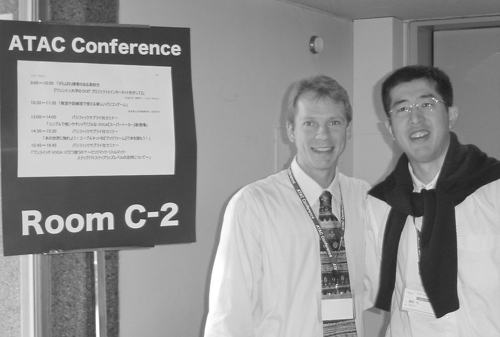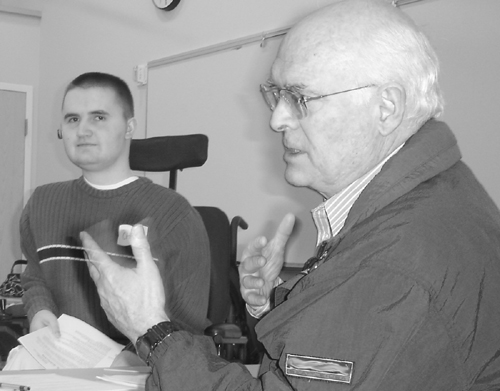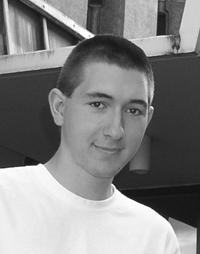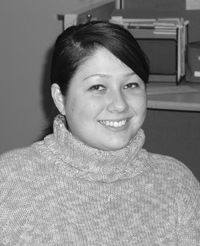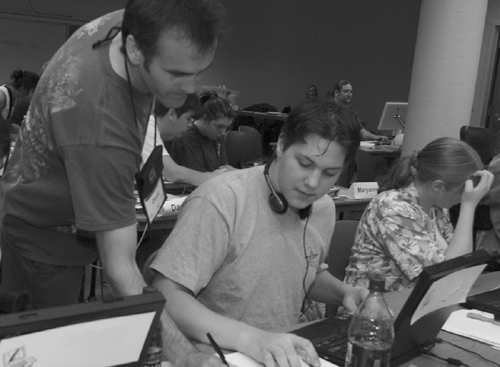Director's Digressions
Meet the 2005 Scholars:
This summer DO-IT will host its annual Summer Study program for DO-IT Scholars. Primary funding for the DO-IT Scholars program is provided by the state of Washington. Additional funding for Scholar activities is provided by the National Science Foundation, the Boeing Company, Dynamac Corporation, and NASA. We welcome the following new participants this year.
Daman, who has cerebral palsy, lives in Silverdale, WA. He is a sophomore in high school and works as a computer systems manager at a local company. Daman is interested in architecture and computer engineering.
Daren lives in Kent, WA. He has a strong interest in math and science. Daren, who has dyslexia, plans to take college courses in his junior and senior year of high school to prepare for medical school.
Andrew, who has Tourette's syndrome, lives in Seattle, WA. He is interested in soccer, drama, art, writing, and engineering and hopes to attend college in Houston.
Sakina lives in Spokane, WA. Her favorite subjects are world history and science. Sakina, who has attention deficit disorder (ADD) and a learning disability, plans to get a degree in business and someday open a clothing store.
Hunter, who has Asperger syndrome, lives in Spanaway, WA. His favorite subjects are math and writing, and he plans to go to college and become a video game designer and a special education teacher.
Kayla B. lives in Bellevue, WA. She is a junior and her favorite subjects include English and science. Kayla, who has muscular dystrophy, would like to become a child psychologist.
Cassandra, who has spina bifida, lives in Spokane, WA. Her favorite subjects are Japanese and technology applications. Cassandra would like to eventually work in the field of computer technology. Currently, she designs computer wallpaper as a hobby.
Kayla T. lives in Kent, WA. She enjoys reading and says that creative writing is her favorite class. Kayla, who has cerebral palsy, would like to earn a college degree and work in the field of computer technology.
Bella, who has cerebral palsy, lives in Seattle, WA. She has an interest in math and has tackled science subjects from astrophysics to genetics. Bella performs in community theatre and would like to be a disability advocate and a preschool or kindergarten teacher.
Dulce lives in Vancouver, WA. Her favorite subject is math and she also enjoys reading. Dulce, who has mild cerebral palsy and is hard of hearing, would like to become a computer support specialist.
Eli, who has Asperger syndrome, lives in Edmonds, WA. His interests include Japanese animation and his favorite subjects are Japanese and science. Eli would like to become an anime translator or a marine biologist.
Nate lives in Seattle, WA. His favorite academic courses include language arts and history. Nate, who has a learning disability, plans to go to college, earn a degree in business, and pursue a career in the real estate industry.
Noah, who has cerebral palsy, lives in Bellevue, WA. His favorite classes are math and social studies. Noah would like to work in the music business or write for a magazine or newspaper.
Jessie lives in Seattle, WA. She enjoys math and language arts and would like to earn a degree in business. Jessie has Morquio syndrome, which effects her mobility, and a learning disability.
Jennifer, who has cerebral palsy, lives in Naches, WA. Her favorite subjects are science and history. She would like to pursue a career in the computer technology field.
Marlen lives in East Sound, WA. Her favorite classes are biology and marine science. Marlen, who has a learning disability, would like to become a biologist.
Jesse, who has Asperger syndrome, lives in Seattle, WA. His favorite courses are French and science. Jesse plans to go to college to become a forensic scientist.
Shavonne lives in Richland, WA. Her favorite subjects are computer applications and student store management. Shavonne, who has spina bifida and hydrocephalus, plans to someday earn a Ph.D.
Logan, who has cerebral palsy, lives in Yelm, WA. His favorite classes are computer science and history. Logan is interested in working as a computer animator or programmer.
Zachary lives in Camas, WA. His areas of interest include mathematics and fire science. Zachary, who has dysgraphia, would like to eventually live in a larger city like Tacoma and work as a firefighter.
